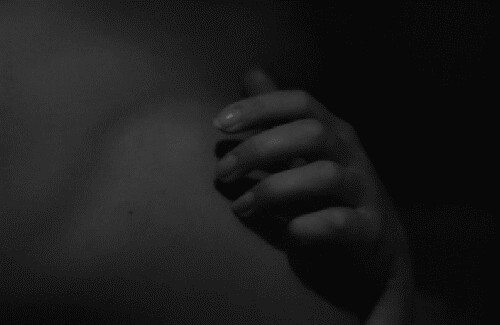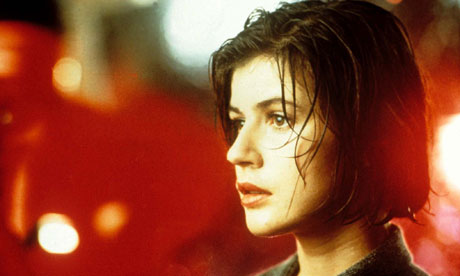Girls just want to have fun.
It's one thing for a film to show life's heartaches in all its tearful, emotional glory, but it's altogether another for it to look at everything as if they're all but punchlines of a very funny story. The latter, I think, is always the more difficult one to pull off, and "Frances Ha" did just that without even figuratively letting out sweat. Throughout the film, there are hints about love and sex and relationship, but it's really more about the bumbling life of this girl named Frances, played with an entertaining kind of passive-aggressiveness by Greta Gerwig, and her bittersweet struggles through the 'black and white' metropolis of existence, all while these three crumble in front of her very eyes.
Despite it being a story of a modern woman who we can pretentiously brand as some kind of a bird whose feather is just too bright for her own good, the film is unexpectedly brimming with so much naivety that you can excuse her foibles not just because it's cute and all but because we can understand her blunders. Frances may not necessarily be likable in the same way the characters portrayed by Katherine Heigl and Jennifer Aniston (then again, I'm not saying that you should like them in the first place) in all those junk chick-flicks out there are, but in her, I can sense someone real and breathing and very, very tangible. She's the kind of character who you can normally bump into on some busy avenue, share a brief smile with, and then be both on your way.
As far as I'm concerned, Frances is as real as any modern female character can get, and it's very smart to show this honesty without reducing and locking her up within a basic 'girl meets boy' plot. "Frances Ha" is, for the record, a love story, but not between two very specific people but more with life itself, and how just wandering through it, sans responsibilities, will inevitably lead you into finding both what you really are and what you're not. And though I have this great urge to brand "Frances Ha" as a film about 'friendship' (between Frances and her best friend, Sophie), really, it's not. I even want to go out of my way and label the film as a comedy but it's really more concerned with the honest-to-goodness dramatic bummers of a twenty-something woman and not with some of her inconsequential quirks ala Wes Anderson. In retrospect, "Frances Ha" really is a film that's almost impossible to categorize simply because it works as some kind of a romance-drama-comedy genre hybrid without really being any of them because it's really just, all along, about this carefree woman who's merely being herself.
As much as possible, I don't want to reference Woody Allen in my reviews of dramedy films because it's just too ho-hum to do so, but "Frances Ha", minus the almost disturbing dose of neurosis and cynicism, is perhaps what a Woody Allen film may look like if he's a little less world-weary, less redundantly psychoanalytical, and, yes, a tad less sexual. Directed by "The Squid and the Whale's" Noah Baumbach, the film is, just like the aforementioned 2005 indie sleeper, is virtually plotless and its cast not much acting but merely being themselves while saying trivial things that, when you think of it, actually matters. Case in point: The scene where Frances describes, half-drunk,what she really wants in a relationship. That's just pure movie magic right there.
The script (co-written by Gerwig herself), in all its looseness, is very effective in impeccably highlighting Frances' aimless pursuit of dancing and, subsequently, happiness as a whole. Though some women may not like it if I declare Frances as 'what a modern woman should look and act like" (especially today where the archetypal 'empowered woman' is the 'in' thing this side of the glass ceiling), I think it is but right to brandish her with such a label because, hey, she's as imperfect as imperfect can be, and isn't modern living?
In "Frances Ha", there's no story but only Frances' life, there's no love but only her idealized concept of it, and there's no actual, concrete friendship but only her dreams of, one day, having such that would never go away. And her goal? To dance and choreograph. Perhaps she's too naive and awkward and a notch too 'undateable' to choreograph and orchestrate an entire production number let alone her very life as it happens, but Frances couldn't care less. Sometimes, at least for her, to want something without ever enacting upon it may just be enough because, sooner or later, it CAN just happen, all while she's having fun with herself and making fun of what she is and what she cannot be. As one of the staple sayings of this 'Tumblr' generation goes: "She saved everyone but couldn't save herself." But wait, Frances is not the martyr type, and no, she's really not keen on saving anyone, so read that quote again the other way around and you will pretty much have the idea of what Frances' "aimless goal" in life ultimately is. Shite. Freakin' oxymoron right there.
Undateable.
FINAL RATING


















